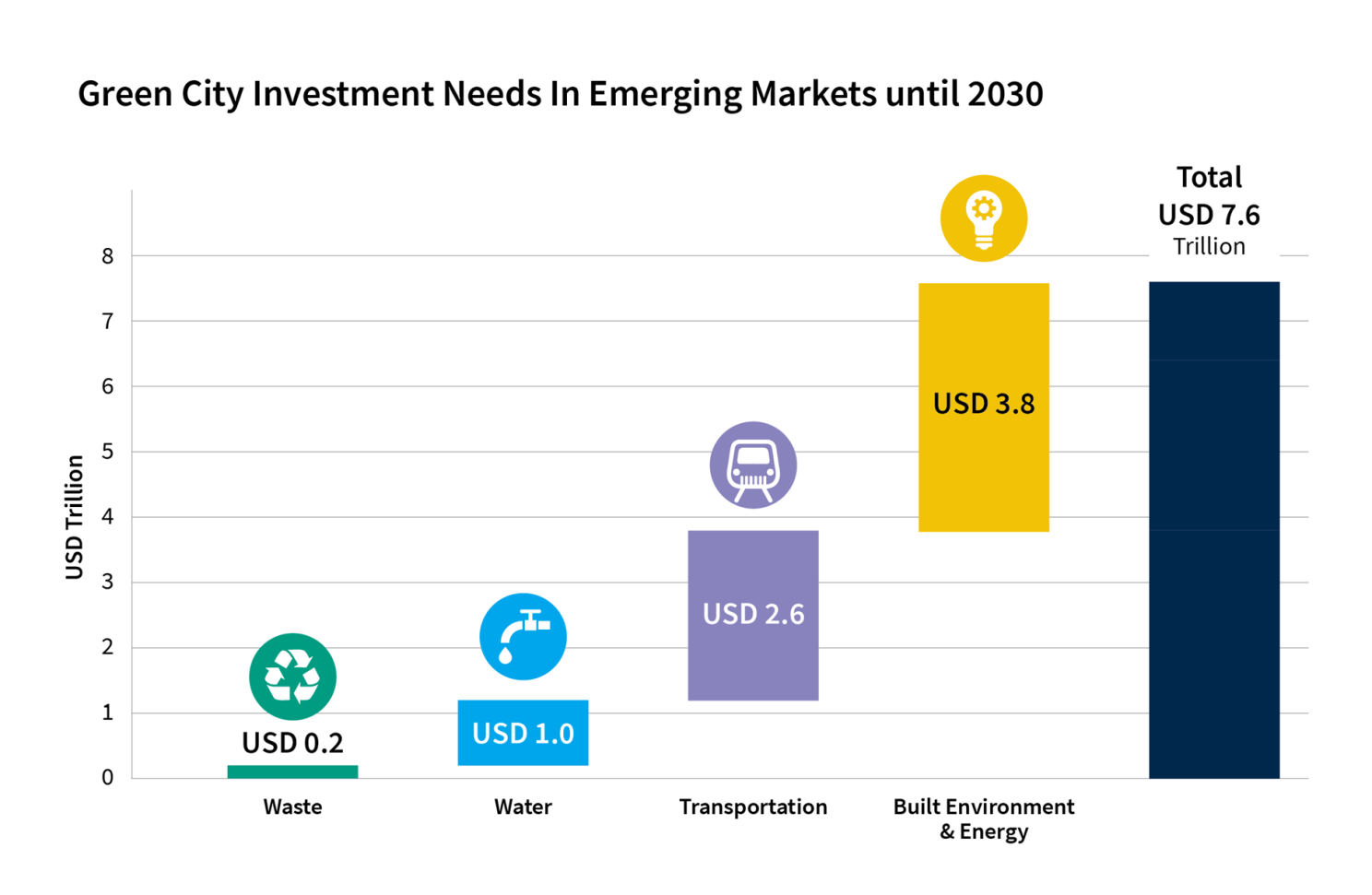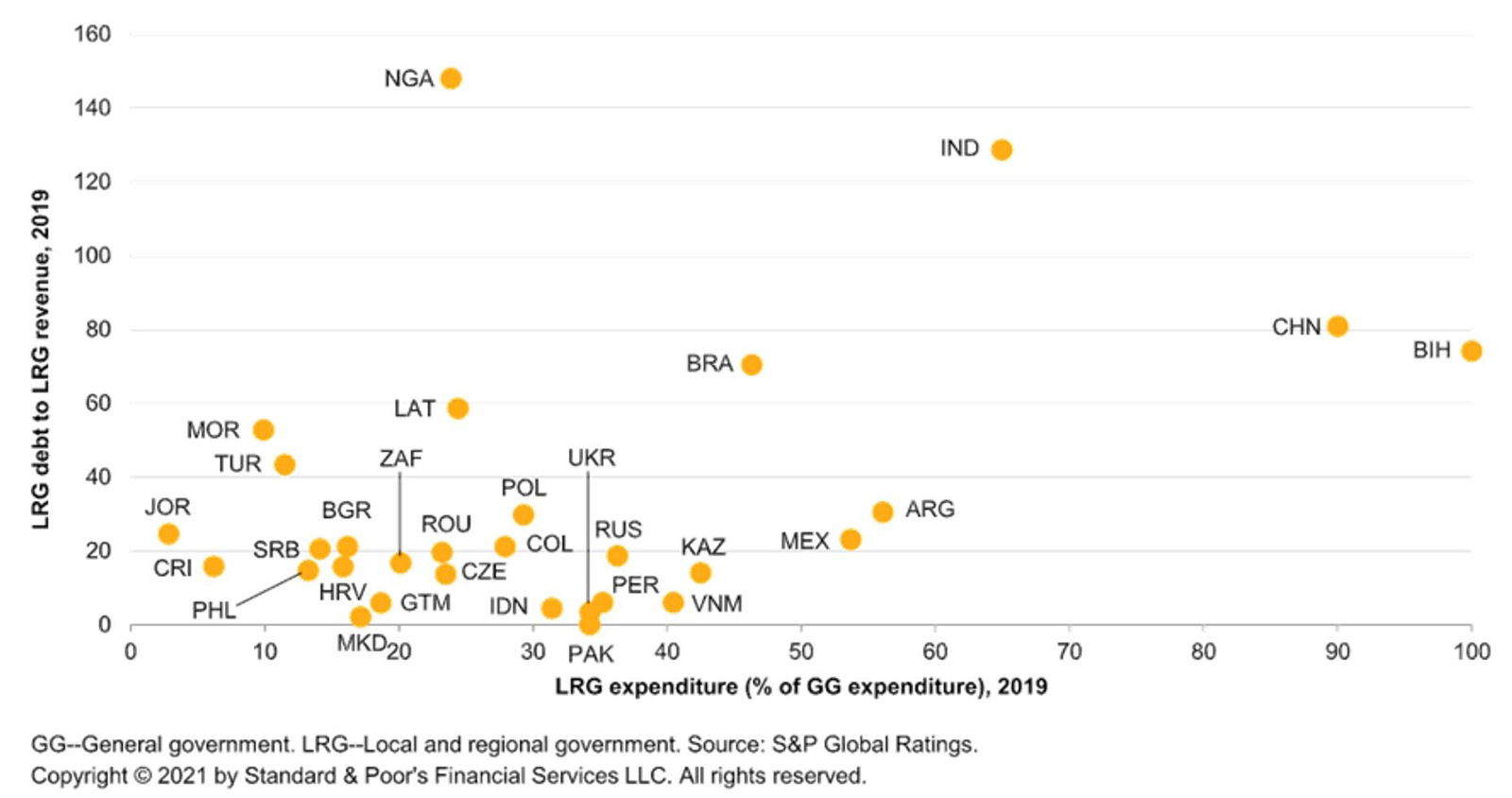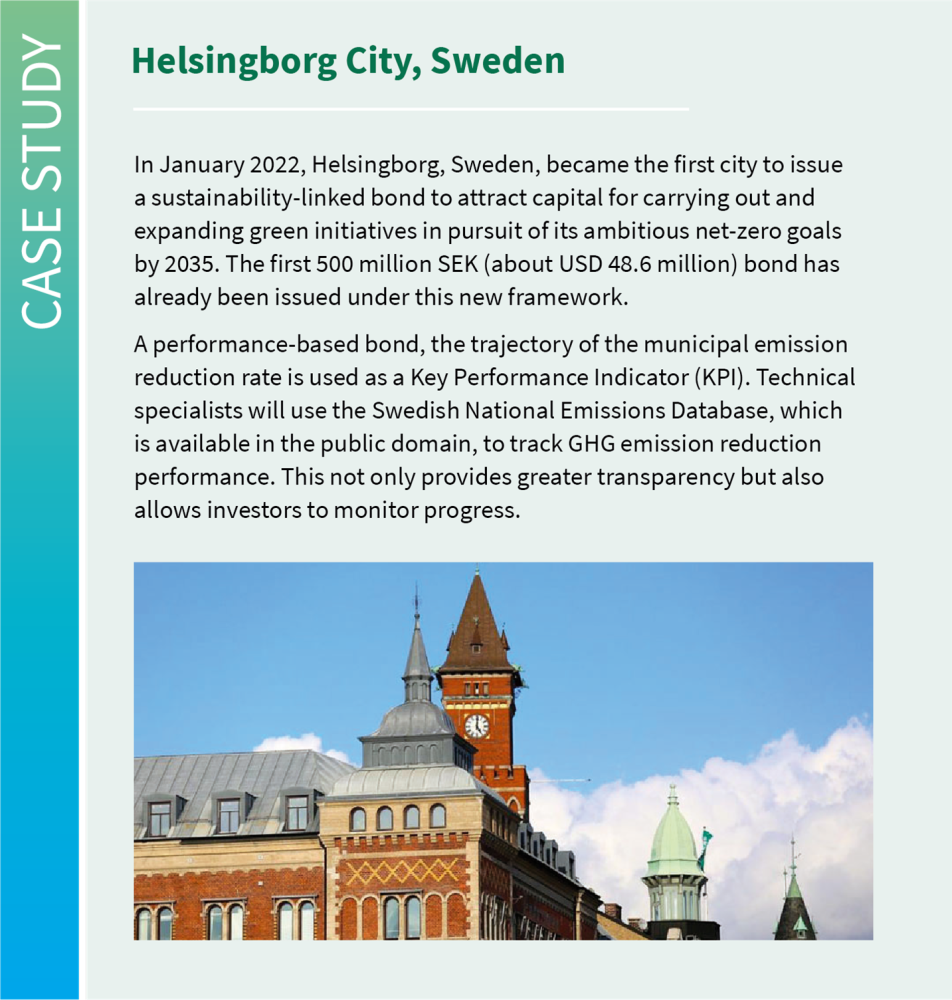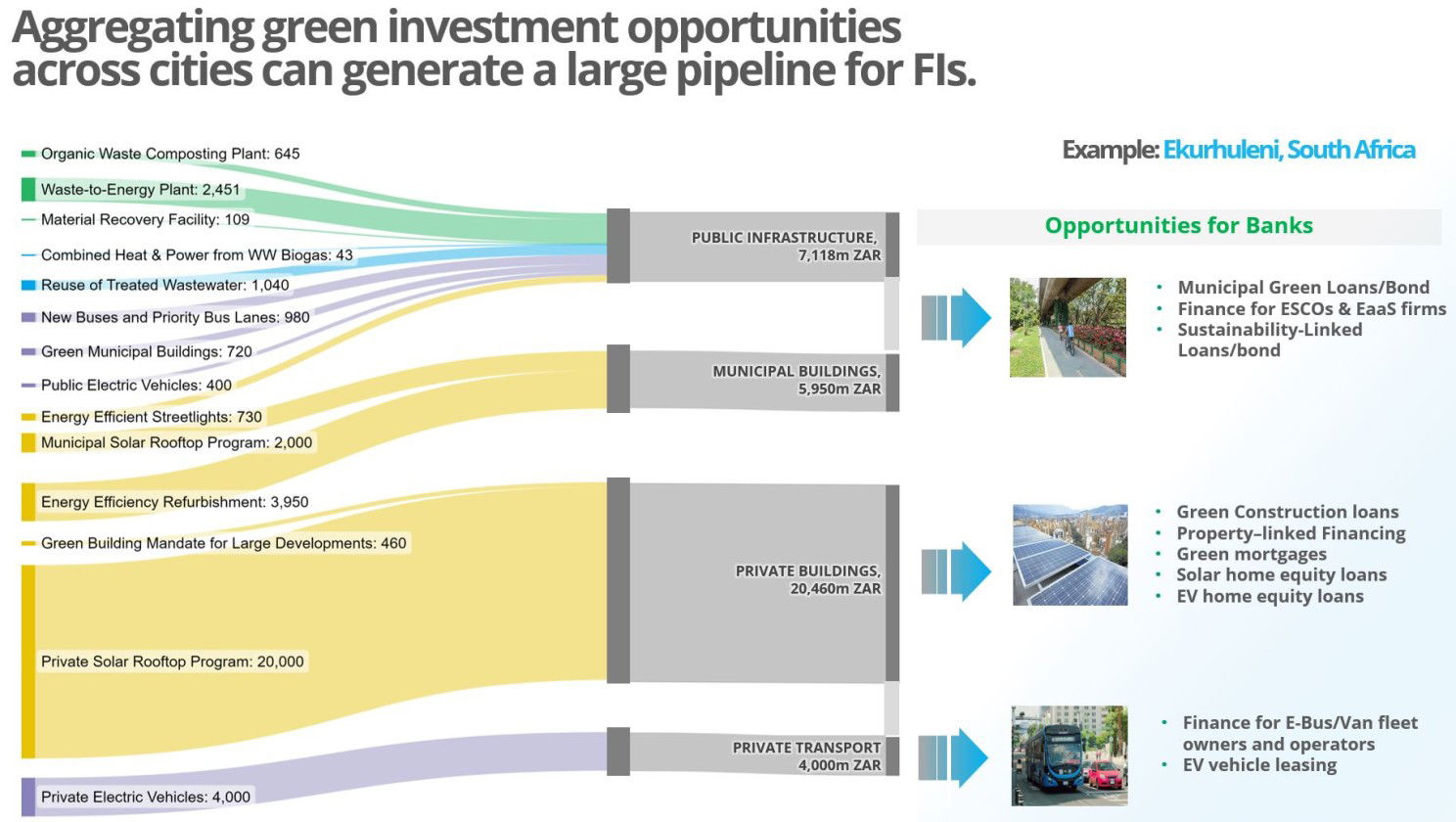Banking on green cities: three reasons why it makes good business sense


· 5 min read
Recent shocks in the global economy have made turbulence feel like the new normal. To thrive in this volatile economic environment, financial institutions need to expand their thinking, innovate, and look for opportunities to widen their investment portfolios. The demand for green, resilient and sustainable infrastructure projects in cities in emerging markets is one such opportunity.
Cities in emerging markets are on the frontline of climate change and are under tremendous pressure to implement mitigation and adaptation strategies. And while commercial banks have historically erred on the side of caution when it comes to lending to local governments in emerging markets, there is now a sizable investment opportunity for banks to harness: the climate-smart upgrade of cities through green finance.
Here are three reasons why financial institutions should invest in green cities:
Climate-smart growth presents a tremendous investment opportunity. IFC estimates that cities in emerging markets have a USD 7.6 trillion green city investment need between 2023 and 2030 (Investment Opportunities in Cities - An IFC Analysis Report 2019). 
Green municipalities also have the potential to be more profitable entities than their non-green counterparts for the following reasons:
By investing in selective and evidence-based climate-smart measures, generated returns can offset any preliminary impacts to the city’s creditworthiness from assuming additional debt. When returns from cost-saving measures outweigh the cost of project finance, a city’s creditworthiness improves.
Banks are already financing the greening of cities through the private real estate and construction sectors. To meet global pressures toward net zero by 2050, global investments between USD 5.2 and 5.4 trillion will be required in the decarbonization of existing buildings alone. So, the demand for green infrastructure is there and banks are already providing financing mechanisms to leverage this demand. But there is scope to do significantly more.
Despite the evident need, municipal finance flows remain constrained in cities in emerging markets – sometimes, but not always, due to regulatory hurdles and complexities. Some local and regional governments have not been inclined to borrow even though they possess ample capacity, and municipal bond markets are often non-existent in emerging economies, even in markets with clear regulatory pathways.

Borrowing can also increase internal levels of scrutiny, maximize transparency and accountability, and lead to more flexible management of funds – for instance through moving expenses from off-balance sheets to on-balance sheets.

Cities with climate-change mitigation and adaptation goals typically have a Climate Action Plan (CAP) or a Green City Action Plan (GCAP) through which they identify and prioritize measures to reach target CO2 emissions reduction across key sectors or types of infrastructure.
These climate-action measures represent their green investment opportunities. By aggregating these opportunities, it becomes possible to scale up and create “green investment pipelines” that encompass a range of initiatives. This surfacing market gap presents a significant opportunity for banks to tap into and secure substantial portions of its growth.
An innovation of IFC, APEX (Advanced Practices for Environmental Excellence in Cities) allows cities and banks to jointly accelerate at-scale financing of urban infrastructure projects. The APEX platform leverages IFC’s well-established Cities Initiative that combines investment and advisory services for cities, including through the provision of direct municipal financing. This, in essence, allows commercial banks to grow and green their investments.
The APEX Green Cities Program partners with cities in emerging economies to help identify and prioritize high-impact carbon-reduction policy actions and infrastructure investments, as well as to identify and provide support in green financing pathways. APEX helps bridge the gap between banks and cities to identify investment pipelines eligible for green finance while also providing data for the necessary KPIs underpinning sustainability-linked loans or bonds.
An example from Ekurhuleni, South Africa, demonstrates how banks can work with cities to aggregate green investment opportunities by creating a significant pipeline for lenders.

As the above example demonstrates, green finance opportunities for banks need not be on a project-by-project basis. Rather, banks can scale the opportunity by categorizing a city’s proposed actions into public infrastructure, municipal buildings, private buildings and private transport. This allows banks to leverage the following opportunities at scale:
Banking on green cities is a no-brainer; it is a win-win situation for banks and for cities. Local governments in emerging markets should be investing in themselves not only to make their cities resilient and future-ready but to encourage private sector growth. Financial Institutions can trust in the payback of green financing of cities and avail themselves of the opportunity to diversify and green their portfolios to invest in a greener future for all.
This article is also published on the author's blog. illuminem Voices is a democratic space presenting the thoughts and opinions of leading Sustainability & Energy writers, their opinions do not necessarily represent those of illuminem.
illuminem briefings

Pollution · Nature
illuminem briefings

Pollution · Cities
illuminem briefings

Cities · Sustainable Living
Euronews

Pollution · Cities
CNN

Pollution · Cities
Politico

Carbon · Pollution